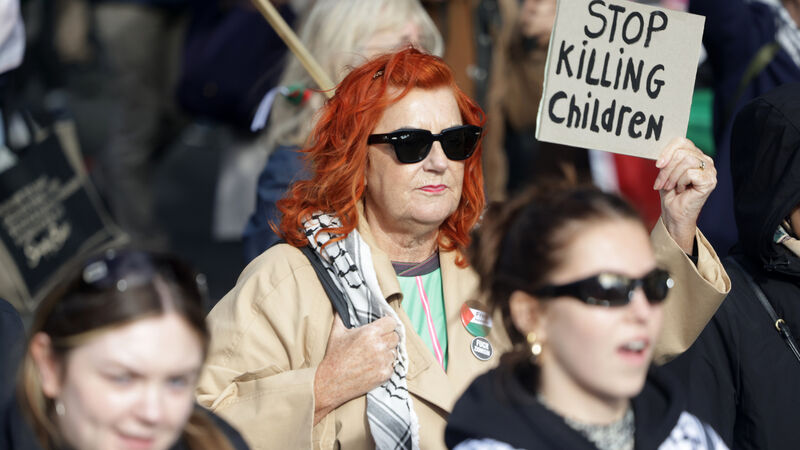Letters to the Editor: Media must be allowed access to Gaza

Protesters at the National March for Palestine in Dublin on Saturday to mark the second year of the genocide in Gaza. Picture: Leah Farrell/RollingNews
Would you trust Donald Trump and Benjamin Netanyahu in the same room together to bring peace to Gaza?
That essentially is the question facing Hamas and Arab mediators regarding the validity of what’s contained in the so-called 20-point peace plan to bring an end to the killing in Gaza, which I heard the Taoiseach and Tánaiste urging both sides to accept. I have to agree with a UK columnist when he wrote during the week in a hard-hitting article: “Anyone signing up to it would have to be mad.”








